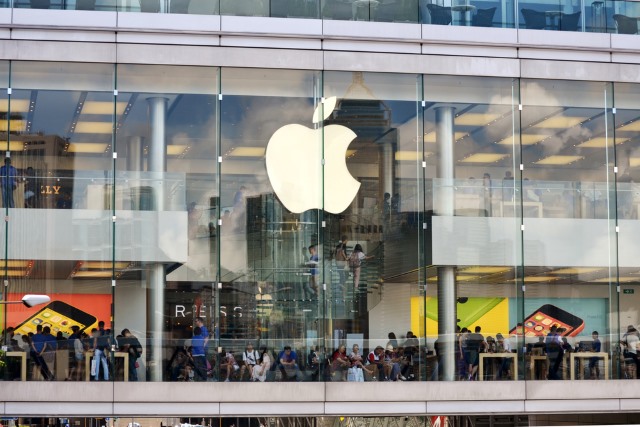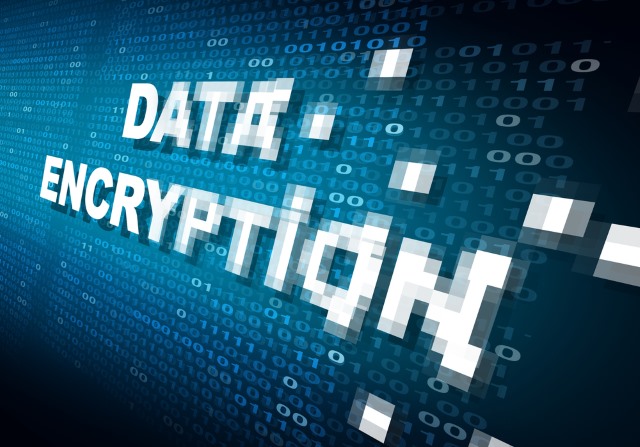
ASUS users will see fewer ads in 2016 thanks to Adblock Plus
Ad blocking is something of a contentious issue, but it's one that has been brought to prominence in 2015. The adblockalypse arrived this year as the debate about whether disabling ad blockers was preferable to paying for content.
Adblock Plus -- one of the best known ad blockers out there -- recently updated its acceptable ads policy which gives people the option of permitting certain ads to appear in their browser. But a new deal struck with ASUS means that anyone buying a phone or tablet from the Taiwanese company in 2016 will find that ad blocking is baked in and enabled by default.

Privacy-focused Tails 2.0 beta 1 Linux distro is here -- Debian 8, GNOME shell classic, and more
With clueless politicians, the media, and scared citizens calling for a ban on encryption, it can feel like the Internet is under attack. Such basic rights to privacy are the foundation of the net -- once we lose them, it can be impossible to get back.
Unfortunately, even mundane aspects of computing, like operating systems -- which should fade into the background -- are threatening our privacy. Windows 10, for instance, sends much data to Microsoft, while Android is partly a means for Google to collect data. Traditional Linux distributions are not inherently privacy-focused, but generally speaking, many are. For the gold standard in privacy and security, Tails -- a distro recommended by Edward Snowden -- can be used. Today, the first beta of the 2.0 version operating system becomes available.

Tim Cook: Apple will not budge on encryption
With many U.S. lawmakers calling for an end to encryption, Tim Cook has decided to reiterate Apple’s stance on the matter. Apple’s CEO believes that when it comes to encryption there is no trade-off between privacy and national security.
During CBS’ program 60 Minutes, on Sunday Cook defended the need for encryption and how it important it is to Apple and its consumers. According to Cook, there is no reason why Americans should not be able to have privacy while simultaneously protecting America’s national security.

What you need to know about VPNs
A virtual private network (VPN) brings additional security to anyone using a public network, such as the Internet. Using a variety of security methods, such as encryption, the VPN is able to safeguard any data transmitted across the network, which may be at risk if it simply used the underlying public network infrastructure.
VPNs are often employed when it would not be practical to use a physical private network, usually due to financial reasons. As businesses embrace mobile working and face increasing pressure to protect sensitive information, many are employing virtual private networks to improve their network security.

Human behavior is the biggest threat to company security
A new survey of cyber security professionals from information management company Nuix shows that businesses are placing greater emphasis on insider threats.
The report reveals that 71 percent of respondents report that they have an insider threat program or policy, and 14 percent say that they allocate 40 percent or more of their budget to insider threats.

Another nail in the coffin for Flash as Facebook defaults to HTML5 video
The demise of Flash has been long, lingering, and painful -- and highly over due in many people's books. There has been a spate of high profile ditchings of Flash recently: Speedtest.net, Twitch, Chrome and Netflix to name but a few. Now Facebook has thrown its hat in the ring switching to HTML5 video.
This is a move that is browser-agnostic, and means that every single video you see on the social network will default to HTML5. While many will see this as a cause for celebration, the change does not completely spell the death of Flash -- it will continue to be used on Facebook for many games.

Stop doing quizzes on Facebook if you place any value on your privacy
You might think that talking about Facebook and privacy in the same breath is a little odd. The two just don’t go hand in hand, surely? Trying to use Facebook whilst maintaining your privacy is an exercise in futility, right? Well, yes, it’s certainly true that hitting a social network is not the thing to do if you want to fly under the radar, but many people do not realize just how easy it is to unwittingly hand over reams of personal information to companies and persons unknown.
While a majority of users are aware that anything they post -- essentially -- becomes Facebook's property, and can be exploited in a variety of ways. Anything shared to the social network can be used to dig up an ever-more accurate picture of who you are, where you are, what you do, what you like, and who you know. Quizzes, personality tests, friend comparisons, and year in review apps, however, are blackholes for personal data -- and the huge range of apps from Meaww have been singled out as being a major cause for concern.

BlackBerry's privacy stance is yet another reason to avoid the company
We are living in a post NSA-world (and I am a post-NSA girl...) and privacy is in the public consciousness more than ever before. After the government surveillance revelations that came courtesy of Eddy Snowden, most tech companies have been trying to stress to customers and clients just how willing they are to stand up for privacy.
But not BlackBerry. Company CEO John Chen has used a blog post to lash out at his contemporaries for supporting strong encryption. He makes a thinly-veiled reference to Apple, accusing that an unwillingness to comply with law enforcement requests put us all in a "dark place". Chen says that "our privacy commitment does not extend to criminals", seemingly failing to recognize that privacy is very much an all-or-nothing concept.

Security researcher finds 685TB of unprotected MongoDB data
There is roughly 685TB of private data from MongoDB instances sitting online, without any protection, researchers have uncovered.
Following the recent discovery by security researcher Chris Vickery, who saw the data of more than 13 million MacKeeper users exposed, another researcher ventured even deeper and found even more unprotected data.

The bible is dangerous for you and your phone
For the religiously-inclined the appeal of installing an electronic bible on a phone is (somewhat) understandable. But as well as providing a biblical fix when out and about, apps of a religious bent could also harbor a worrying payload.
The Threat Insight team from Proofpoint looked at thousands of iOS and Android apps, and found that a disturbing percentage of seemingly innocent apps pose a threat to users. Apps were found to include secret tracking components, as well as data-stealing elements and the ability to make unauthorized calls. The figures make for frightening reading.

Adblock Plus updates Acceptable Ads and reveals how it makes money
Ad-blocking tools are more popular than ever before, and this spells potential disaster for anyone who relies on ad revenue from their web site. Previously something only available to desktop users, the widespread hatred of ads saw the tools spreading even to iOS.
A while back Adblock Plus revealed that its Acceptable Ads program -- which gives users the options of permitting the display of certain non-intrusive ads -- would be independently overseen. Today we not only learn about the latest updates to the program criteria, but also how monetizing is possible.

Apple spams users to promote iPhone 6s
Microsoft managed to irritate a lot of people with its heavy-handed pushing of Windows 10, and now Apple has taken a leaf out of the company's book. December may be the time when many people think about getting a new phone -- and Apple is likely to fare very well out of upgrades -- but some iPhone owners have been upset by the appearance of spam in the App Store.
We're not talking about a mass mail-out inviting people to upgrade to the latest iPhone, but ugly, unsolicited popup ads used to push Apple's mobile. Describing the iPhone 6s as 'ridiculously powerful' the ads have been seen by those running iOS 9.1 and 9.2. It's something that could be dismissed, but spamming is unchartered waters for Apple.

Connected toys and the IoT could be the next weapons of mass surveillance
Just a few days ago, we heard about the potential for the web-enabled Hello Barbie to provide hackers with personal data. Numerous vulnerabilities open up the potential for data to be stolen, but this could be the start of a worrying trend. If you thought the surveillance activities of the NSA and GCHQ are disturbing, things could be about to get much worse.
There is a movement underway that sees every conceivable device being transformed into a connected device. This is more than just the Internet of Things -- security experts are warning that not only could any devices connected to the internet (including web-enabled toys) could be used to spy on users, placing children at risk.

Why not use open source encryption?
There’s a lot of talk about encryption these days. Often the issue arises when moving data to the cloud, using solutions like Dropbox or Box. We start to wonder if our information will be safe if it’s no longer stored locally on computers in our offices. We are confident that Dropbox and Box store everything in a secure way -- we have little reason to believe that they don’t, right?
Next, we think, "OK, what happens when information leaves or enters the cloud? Is our communication safe? Maybe that information should be encrypted, too". Actually, there’s no question about it. Data should be encrypted when it moves in and out of a network and when it’s stored in the cloud.

Hotel California and the Internet's future
When the Eagles released "Hotel California" in 1977, they were singing about drugs and the grip that addiction can hold over people. "We are all just prisoners here of our own device" is a stark reminder of how our own actions can end up trapping us, from which "we can never leave". But in the 21st century, these lyrics have taken on a new meaning. Look around any crowded place nowadays and it’s quite clear that many of us have become prisoners of literally our own devices -- smartphones, tablets, laptops, anything and everything with an Internet connection. Our lifestyles practically require us to always be on and connected to everyone else.
The Internet is our digital drug, and while it has proven immensely useful as a communications utility and public good, it has also enabled a select handful of powerful companies to take advantage of that need by monopolizing the Internet and segmenting it -- and us with it -- into silos under their control.
